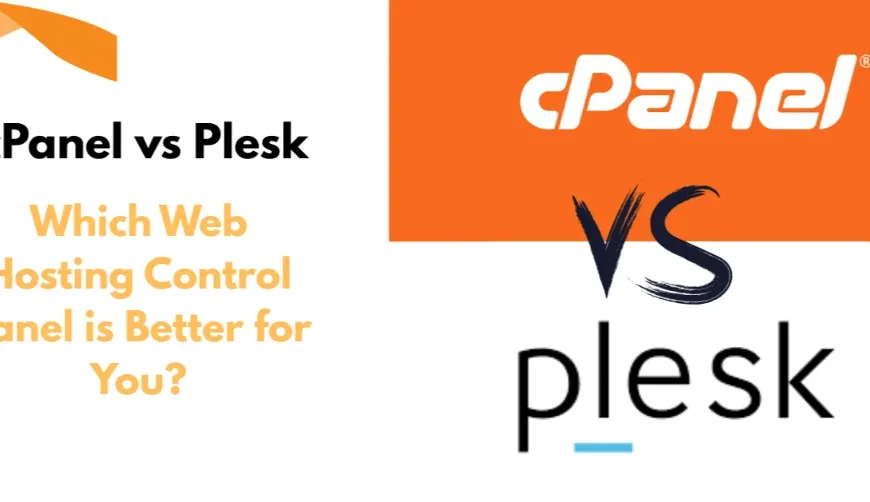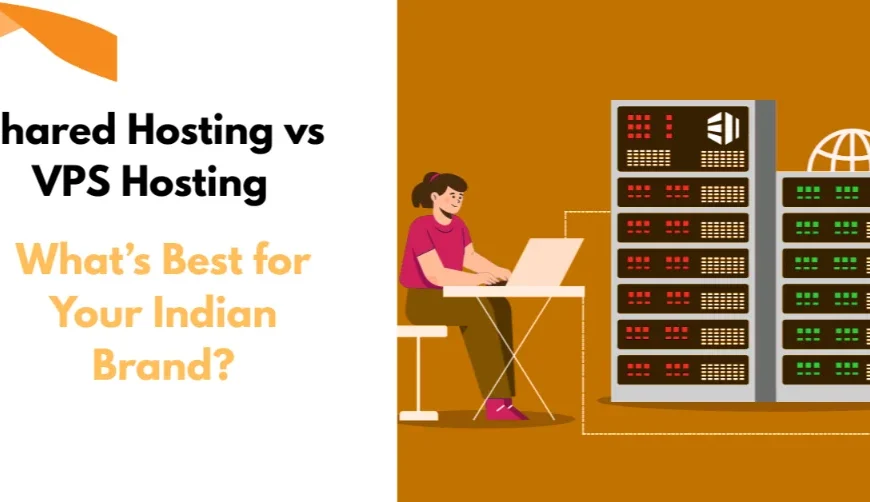VPS and shared hosting are the two most common types of web hosting services today, but which one is right for your business in India?
To determine that answer, you need a basic understanding of each type of service.
Here we will take an in-depth look at both VPS and shared servers, as well as their advantages and disadvantages. This way, when it comes time to decide what kind of server best fits your needs, you can do so confidently!
What is Shared Hosting
Shared hosting is a lot like living in an apartment complex. You have your own space that you can decorate and make your own, but you share common areas with other people in the building.
This means you split the cost of things like the lobby, the elevators, and maintenance with all the other tenants.
The biggest advantage of shared hosting is that it’s much cheaper than other types of hosting. This is because you’re sharing the cost of the server with dozens or even hundreds of other customers.
The downside is that you also have to share the server’s resources, leading to slower speeds and less uptime.
Why Choose Shared Hosting in India
Here are five scenarios where shared hosting would be the better option:
- You’re just starting out. If you’re new to the website world, shared hosting is a great way to get your feet wet. It’s more affordable than a VPS, and you’ll be able to take advantage of all the features and tools that come with having a host.
- You don’t need much space. Shared hosting is a good option if your website is small and doesn’t require a lot of storage space or bandwidth. You can always upgrade later if you need more space.
- You need an eCommerce platform. If you plan on selling products or services online, you’ll need a host to provide an eCommerce platform. Shared hosts typically offer platforms like WordPress and WooCommerce, which are great for small businesses.
- You’re not ready for a VPS. Shared hosting is a good way to start if you’re unsure if a VPS is right for your website. You can always upgrade later if you find that you need more control over your server or want to add more features.
- You don’t have much experience with servers. If you’re new to web hosting and don’t know much about servers, then shared hosting is probably the best option. With a VPS, you’ll need to be more hands-on with your server and understand how servers work.
Shared Hosting Pros:
- Shared hosting is often more affordable than other types of hosting.
- A good option for small businesses or personal websites that don’t need a lot of resources.
- A good way to get started with a website is because it is easy to set up and doesn’t require much maintenance.
- Usually comes with a control panel that makes it easy to manage your website.
- Typically offers good customer support in case you have any problems.
Shared Hosting Cons:
- Can be slower than other types of hosting because your website is sharing resources with other websites on the same server.
- Can be less secure than other types of hosting because if one website on the server is hacked, all of the websites on the server are at risk.
- If you have a high-traffic website, shared hosting in India may not be able to handle the traffic
What is VPS
A VPS is short for Virtual Private Server, a type of hosting that gives you your own private server.
Per our previous analogy, shared hosting is like an apartment complex where you share the same space with other people, but with a VPS, you have your own private space.
Like an apartment complex has shared amenities (like a pool or gym), a VPS also has shared resources (like CPU power and memory).
But, unlike an apartment complex, if one tenant uses too many resources, it doesn’t affect the other tenants. They can still use their resources without any problems.
So, what are the benefits of having your own private server?
For starters, it’s more secure since you’re not sharing space with other users. If one user on a shared host gets hacked, it can put everyone else at risk.
So, if you have something like a forum where you collect user-generated content, it’s safer to use a VPS. Another benefit of having your own VPS is that you can install whatever software you want on it.
Why Choose VPS Hosting in India
- You need more control over your server. With a VPS, you’ll have root access to your server, which means you can install any software you want and make any necessary changes. If you’re looking for more control over your website, then a VPS is a good choice.
- You need more storage space or bandwidth. If your website is starting to grow and get more traffic, then you may need to upgrade to a VPS to accommodate the growth. A VPS will give you more storage space and bandwidth so your website can handle the extra traffic without slowing down.
- Your shared host doesn’t offer certain features. If there’s something that you want to do with your website but find that your shared host doesn’t offer it (such as an eCommerce platform), then upgrading to a VPS could give you access to the features that you need.
- You plan on selling products or services online. As mentioned above, if you plan on selling products or services online in India, then having an eCommerce platform available is important., And since most shared hosts don’t include this type of feature, opting for a VPS instead could be advantageous.
- You need a dedicated IP address. If you want a dedicated IP address for your website, you’ll need to sign up for a VPS plan. Shared hosts typically don’t offer this feature, so if it’s important to you, then going with a VPS is the best option.
VPS Hosting Pros:
- Provides a more affordable option for small businesses or startups than other hosting types, such as shared hosting or dedicated hosting.
- Offers more control and flexibility than shared hosting, as each virtual server can be configured independently.
- Can be scaled up or down easily as your needs change without having to migrate to a new server or reconfigure your existing one.
- Are usually more stable and reliable than shared servers, as each virtual server has its own resources and is not affected by other users on the same physical server.
- Many VPS hosts offer features such as automatic backups, security monitoring, and DDoS protection, which can all help to keep your website or online store up and running smoothly.
VPS Hosting Cons:
- Although VPS hosting is more affordable than dedicated hosting, it is still more expensive than shared hosting.
- Does not offer the same level of performance as dedicated hosting, as each virtual server shares resources with other users on the same physical server.
- VPS servers can be less reliable than dedicated servers, as they are still affected by other users on the same physical server.
- Can be more complex to set up and manage than shared hosting, as each virtual server needs to be configured independently.
- Some VPS hosts do not offer the same features as dedicated hosts, such as unlimited storage space or bandwidth.
VPS vs Shared Hosting in India: A Comparison
Clearly, VPS hosting and shared hosting are both popular choices for web hosting in India. But which one is the best option for your business? Here’s a comparison of VPS vs shared hosting to help you decide.
With VPS hosting, your website is hosted on its own server, giving you more control over your site and its security. However, VPS hosting can be more expensive than shared hosting.
Shared hosting is a good option for small businesses or websites with low traffic levels. Your website will share a server with other websites, so you’ll need to be careful about potential security risks. Shared hosting is usually much cheaper than VPS hosting.
So, which one should you choose?
Here’s a further breakdown for you.
#1. Resource Allocation
Resource allocation refers to the number of physical resources that are allocated to each server. In other words, it measures how much RAM, CPU, and disk space is available for each user on a shared host vs VPS.
Shared hosts typically allocate around 1-2GB of RAM per server, while VPS providers offer anywhere from 512MB to 8GB of RAM per server. CPU resources are also more limited on shared hosts, with most allocating around 2-4 cores per server, while VPS providers offer anywhere from 1 – 8+ cores per server.
As for disk space, it is not uncommon for shared hosting providers to give each user around 100GB of storage, while VPS providers will offer anywhere from 10GB – 300GB of storage per server.
VPS vs. Shared Hosting – Resource Allocation: Verdict
If you are looking for more resources and better performance, then VPS is the way to go. Shared hosting providers cannot compete with the amount of RAM, CPU, and disk space VPS providers can offer.
#2. Security
Regarding security, shared hosts are at a disadvantage because they share the same physical server with other users. This means that if one user’s website gets hacked, it could potentially affect other websites on the same server.
VPS providers also have to worry about security since they are offering virtualized environments. However, they do have an advantage in that they can offer more robust security features such as firewalls and intrusion detection/prevention systems.
In addition, VPS providers typically have better policies in place regarding data backups and recovery.
Shared Hosting vs. VPS – Security: Verdict
If security is a major concern for you, you will want to go with a VPS provider over a shared host. VPS providers can offer more robust security features and better policies for data backup and recovery.
#3. Performance
Performance is always a major concern when it comes to hosting websites. Shared hosts are at a disadvantage because they share the same physical server with other users. This can lead to resource contention and lower performance for all websites on shared hosting in India.
VPS providers do not have to worry about resource contention since each user is allocated a certain amount of resources (RAM, CPU, etc.).
Not to mention, VPS providers typically use high-performance hardware such as SSDs, which can further improve website performance.
Shared Hosting vs VPS – Performance: Verdict
If you are looking for better performance, you will want to go with a VPS provider over a shared host. VPS providers do not have to worry about resource contention and typically use high-performance hardware.
#4. Configuration and Customization
Here, we are talking about the ability to modify server settings and configurations.
Shared hosting typically does not allow users to modify server settings or configurations. This means that if you want to change something, you will need to contact support and hope they can make the changes for you.
VPS, on the other hand, usually gives users root access, allowing them full control over their virtual environment. This includes the ability to install any software or applications they need and make any modifications they desire.
Shared Hosting vs VPS – Configuration & Customization: Verdict
You will want a VPS over shared hosting if configuration and customization are important factors. This is because VPS offers root access, while shared hosts typically do not allow user modifications.
#5. Scalability
Scalability refers to the ability to scale up or down as needed.
Under shared hosting, it can be hard to scale because it doesn’t offer the same level of flexibility as VPS.
For example, if you need more resources, you will need to upgrade your shared hosting account, which could be expensive and require moving your website to a new server.
VPS in India usually allows users to add or remove resources as needed without having to move their websites since each user has their own virtual environment.
This makes it much easier and more cost-effective for users who need more resources occasionally or want the option of scaling up in the future without incurring any significant upfront costs.
Shared Hosting vs VPS – Scalability: Verdict
If scalability is important for you, then you should go with a VPS hosting account over a shared one.
#6. Price
Shared hosting is much cheaper than VPS hosting. This is because you are sharing the server resources with other users. On the other hand, VPS hosting gives you your own dedicated server, which means you will have to pay for the entire server.
Shared Hosting vs VPS – Scalability: Price
Shared hosting will be the cheaper option if you are just starting out. However, if you need more resources or want more control over your server, VPS hosting will be the better option in the long run.
What Other Web Hosting Types Are There
Shared hosting is the most popular web hosting type for small businesses in India. It is a cost-effective option that offers all the basic features and tools you need to get started with your website.
So does VPS hosting. It gives you the taste of dedicated hosting at a lower cost.
However, other web hosting types available might be a better fit for your business, depending on your needs. Here are some of the other options:
- Cloud Hosting: Cloud hosting is a newer type of web hosting that delivers websites through a network of servers. This can offer scalability and flexibility for businesses that experience spikes in traffic or need to scale up their operations quickly.
- Dedicated Hosting: Dedicated hosting gives you your own server to host your website. This can be a good option for businesses with high traffic levels or needing more control over their server environment.
- WordPress Hosting: WordPress hosting is a type of web hosting specifically designed for WordPress websites. It can offer features and tools to help optimize your website performance.
Read also: Which Is the Best Web Hosting Company In India?
Conclusion
Web hosting in India is a vital part of any business website. Choosing the right web hosting plan is important before launching your website. There are two main types of web hosting plans: VPS and shared hosting.
VPS plans offer more resources and flexibility than shared hosting plans but are also more expensive. If your website is resource-intensive or needs full control over your server environment, then a VPS plan is probably the right choice for you.
Shared hosting plans are a good option for small businesses and websites with moderate traffic levels. Shared hosting plans are less expensive than VPS plans but have some limitations. For example, you won’t fully control your server environment with a shared hosting plan.
The bottom line is that choosing the right web hosting plan for your business is important.
Check our:
Shared Hosting vs. VPS Hosting in India FAQ
Are you starting to see a lot of traffic to your website? Are you starting to feel like your shared host can’t keep up with your website’s needs? If so, it might be time to consider switching to VPS hosting.
With VPS hosting, you’ll get your dedicated server resources, which means your website can handle more traffic and run more smoothly. Plus, you’ll have more control over your server environment, so you can customize it to better suit your needs.
How Many Websites Can You Host on VPS?
While the number of websites you can host on a VPS depends on the size and specifications of your server, most VPS servers can easily accommodate dozens of websites. In fact, some VPS servers can even handle hundreds of websites without issue.
So a VPS could be the perfect solution if you’re looking for a cost-effective way to host multiple websites.
Is Shared Hosting Better for SEO?
One of the biggest dangers of shared hosting is that you may end up sharing a server with spammy or low-quality websites. This can lead to your website being associated with these sites and can hurt your SEO.
Before you decide on shared hosting, make sure you do your research and choose a reputable provider. If you are careful about who you share a server with, shared hosting can be a great option for improving your SEO.
What is better, shared hosting or cloud hosting?
One of the most difficult choices for website owners is picking between shared hosting and cloud hosting. Both have their pros and cons, but which one is better?
Shared hosting is great for small websites that don’t need a lot of resources. It’s also cheaper than cloud hosting. However, shared hosting can be slower and less reliable than cloud hosting.
Cloud hosting is more expensive than shared hosting but is more flexible and scalable. If your website starts to grow, you can easily upgrade your resources. Cloud hosting can also be more reliable than shared hosting.
So, which one is better? It all depends on your needs. Shared hosting is a good choice if you have a small website that doesn’t need many resources.
Can VPS be hacked?
As technology continues to evolve, so do how hackers can target systems. While it was once thought that only physical servers could be hacked, virtual private servers (VPS) are now also at risk. So, can VPS be hacked?
It is possible for hackers to gain access to a VPS if the server’s security measures are not up to par. Hackers can exploit vulnerabilities in the server software or hardware to gain access. Once they have access, they can wreak havoc on the system, causing data loss or corruption.
However, there are steps that you can take to protect your VPS from being hacked. First and foremost, make sure that your server software is up-to-date and patched regularly. Secondly, use strong passwords and two-factor authentication for all user accounts.
Read also: Managed vs. Unmanaged VPS in India: Which Is Right for You?
 Web HostingBudget-friendly shared hosting plans
Web HostingBudget-friendly shared hosting plans Domains SearchFrom .com to unique country domains, explore and register extensions worldwide.
Domains SearchFrom .com to unique country domains, explore and register extensions worldwide. WordPress HostingPower your blog or business with WordPress hosting.
WordPress HostingPower your blog or business with WordPress hosting. Email HostingSimple, secure email hosting that helps you stay connected and professional.
Email HostingSimple, secure email hosting that helps you stay connected and professional. Reseller HostingStart your own hosting business with easy and reliable reseller hosting plans.
Reseller HostingStart your own hosting business with easy and reliable reseller hosting plans. AffiliateJoin our affiliate program and earn commissions every time you bring in new customers.
AffiliateJoin our affiliate program and earn commissions every time you bring in new customers. cPanel HostingHosting powered by cPanel, the world’s most user-friendly control panel.
cPanel HostingHosting powered by cPanel, the world’s most user-friendly control panel. Windows HostingBuilt for Windows applications and websites
Windows HostingBuilt for Windows applications and websites IN Domain PricesDon’t miss out on the best domain deals in India!
IN Domain PricesDon’t miss out on the best domain deals in India! WHOIS LookupFind out who owns a domain name with a quick and easy WHOIS search.
WHOIS LookupFind out who owns a domain name with a quick and easy WHOIS search. Domain TransferTransfer your domain to us and enjoy reliable support every step of the way.
Domain TransferTransfer your domain to us and enjoy reliable support every step of the way. .Com DomainGet the most trusted domain for worldwide credibility
.Com DomainGet the most trusted domain for worldwide credibility All TldsSearch and register domain extensions worldwide.
All TldsSearch and register domain extensions worldwide. Managed VPS HostingNot a tech expert? Choose our fully managed VPS service.
Managed VPS HostingNot a tech expert? Choose our fully managed VPS service. Dedicated ServersTake full power and total control of your own physical server.
Dedicated ServersTake full power and total control of your own physical server.






